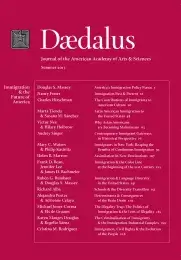The Criminalization of Immigrants & the Immigration-Industrial Complex
Over the last few decades, and particularly after 9/11, we have witnessed the increasing criminalization of immigrants in the United States. Changing policies have subjected immigrants to intensified apprehension and detention programs. This essay provides an overview of the context and policies that have produced the rising criminalization of immigrants. We draw on the institutional theory of migration to understand the business of detention centers and the construction of the immigration-industrial complex. We link government contracts and private corporations in the formation of the immigration-industrial complex, highlighting the increasing profits that private corporations are making through the detention of immigrants. We conclude with a discussion of how the privatization of detention centers is part of a larger trend in which basic functions of societal institutions are being farmed out to private corporations with little consideration for basic human rights.
Though the path of the immigrant in the United States has never been easy, the costs of being an undocumented immigrant are higher today than ever before. Not only is the always-risky journey into the United States much more treacherous now than it was in the past, but blending in once here is becoming increasingly difficult. The attitude of U.S. natives toward undocumented immigrants (particularly if they are from Latin American countries) is increasingly hostile and inhospitable. Even gainful employment offers little insulation from the rabid xenophobia that has engulfed some segments of the U.S. population in the post-9/11 era. Immigration and Customs Enforcement (ICE) officials have raided and rounded up people who, but for their lack of documentation, would be viewed no differently from the millions of hardworking Americans trying to make a living for themselves and their families. They are seized from their workplaces, shackled, and hauled off to detention centers–jails and prisons–where they . . .
